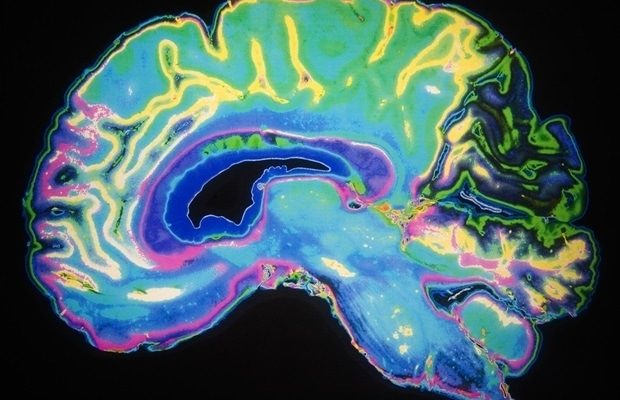Not enough is understood about the long-term relationship between brain health, concussion history and sports.
To that end, the Michigan Alumni Brain Health Study will examine whether sport participation and concussions are associated with later-life brain health in former U-M athletes and nonathletes.
The pilot study, co-led by researchers from the U-M School of Nursing and Michigan Medicine, will compare cognitive, mood, sleep, pain and functional outcomes in a sample of male and female athletes and nonathletes who most recently attended U-M at least 10 years ago.
Long-term health effects of contact sports and concussion?
Jarrett Irons, former All-Big Ten linebacker and a U-M football co-captain in the mid-1990s, is the son of NFL player Gerald Irons. He said his father would not have played professional football if he had known the damage repeated blows to the head might cause to his brain.
Because of his father’s experience, Irons, who lives in Detroit with his family, now serves on the board of the U-M Concussion Center, advocating for concussion research and awareness. The Concussion Center and the U-M Athletics Department support the pilot study.
Research does not show a one-to-one link between contact sports, head trauma and brain health, U-M researchers say. It’s likely many factors influence who develops chronic traumatic encephalopathy, a progressive brain disease thought to be related to head trauma. Existing research, especially from professional football players, has fueled concern, lawsuits, concussion safety protocols and more CTE research.
“We need this research to fill gaps in the current evidence,” said James Eckner, U-M associate professor of physical medicine and rehabilitation and associate director for research at the Michigan Concussion Center. “Population-based research done in former high school football athletes demonstrates no adverse effects on brain health with age.
“In contrast, pathological CTE has been found in the majority of brains of deceased former professional football players who have donated their brains to science. This study will help us understand what’s going on between those two extremes.”
Only an autopsy can conclusively diagnose CTE, and Irons said his father wasn’t a candidate after he died. The Irons family believes head trauma may have contributed to Gerald Irons’ symptoms of depression, Parkinson’s and Lewy body dementia. He died in 2021.
For most who get concussion, it’s mild. We’re interested in how that pans out over the life course. We want to focus on high-impact sports like football, lacrosse, ice hockey and wrestling, because those will have more repetitive and severe concussions, and we really want to see if there is a higher-than-expected level of long-term brain health effects.”
Philip Veliz, co-investigator and associate research professor at the School of Nursing
Focus on U-M alums
The focus on U-M alumni makes study recruitment easier and there is more control over the study population. Researchers hope to begin analyzing data by mid-2023 and plan to follow up with a larger study of in-person assessments, including formal cognitive testing and scans of volunteers’ brains, and blood biomarker levels.
The U-M Athletics Department has played a pivotal role in the success of the project by helping promote the research among former athletes. Athletics partners with the Concussion Center in a variety of other areas, by supporting the center’s research, providing access to student athletes for research (when appropriate) and advising on overall strategy and mission.
Study could help clarify questions about playing contact sports
Jarrett Irons said that knowing what he knows now about concussions, he would still have played youth league, high school and college football.
“I would have definitely played in college,” he said. “The game of football, my experience studying and playing football at the University of Michigan, has had a lasting positive impact on my life. I wouldn't change that experience for anything.”
However, Irons would have cooled on trying to play professional football.
“With the information we now know about concussions, I wouldn’t have pursued trying to further my career by making it in the NFL,” he said.
Nor would his father Gerald–who earned his MBA and a law degree while playing football–have played 10 years in the pros, Irons said.
“As we do more of this type of research into head trauma and sports, we will be able to provide better information to young athletes, so they can make smart and healthy decisions,” he said.
Veliz said that’s the goal.
“(The study) will provide more information when determining whether to play at higher levels and when to return to the sport after an injury,” he said. “The findings could help inform sport organizations on how to appropriately intervene when these injuries occur.”
Individuals who attended or graduated from U-M more than a decade ago can learn more about the study at U-M Health Research.
University of Michigan
Posted in: Medical Science News | Medical Research News | Medical Condition News
Tags: Biomarker, Blood, Brain, Brain Disease, Chronic, Concussion, Dementia, Depression, Encephalopathy, Head Trauma, Medicine, Nursing, Pain, Research, Sleep, Trauma
Source: Read Full Article
